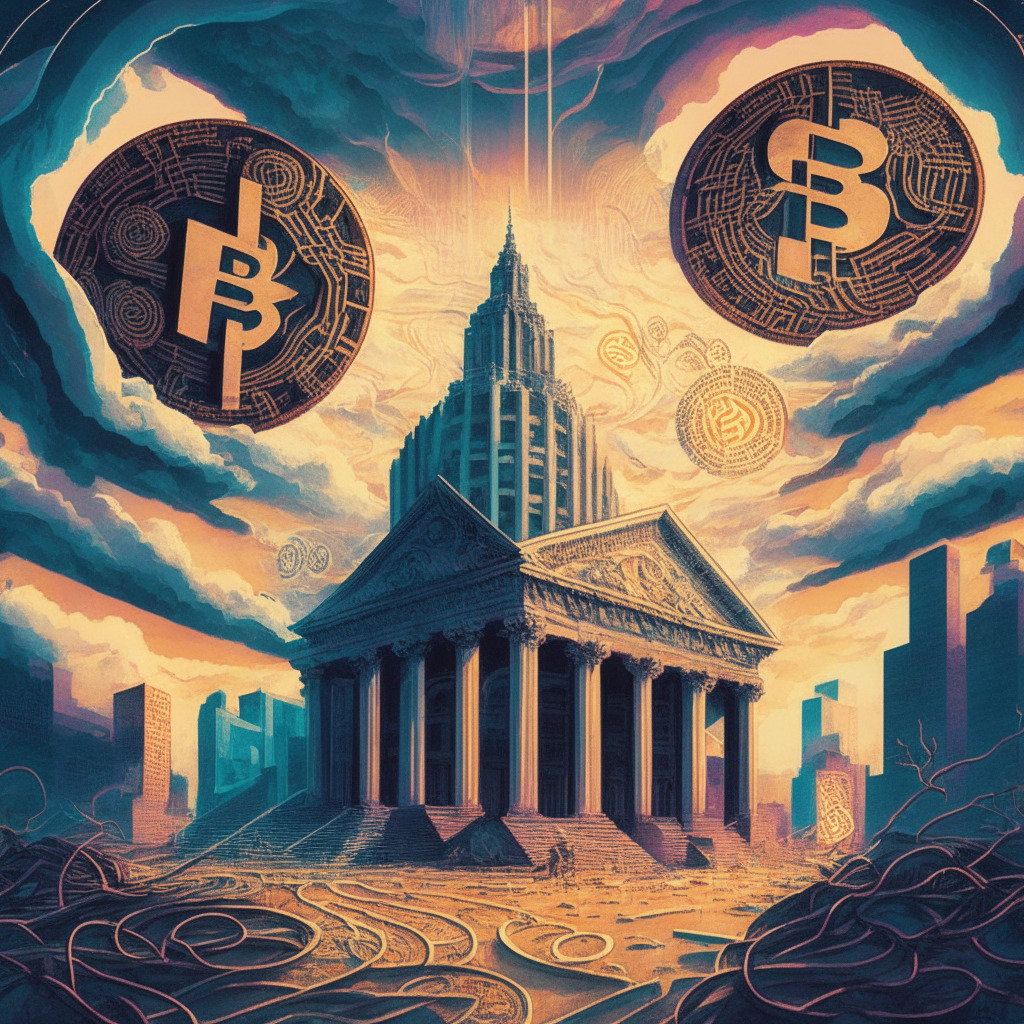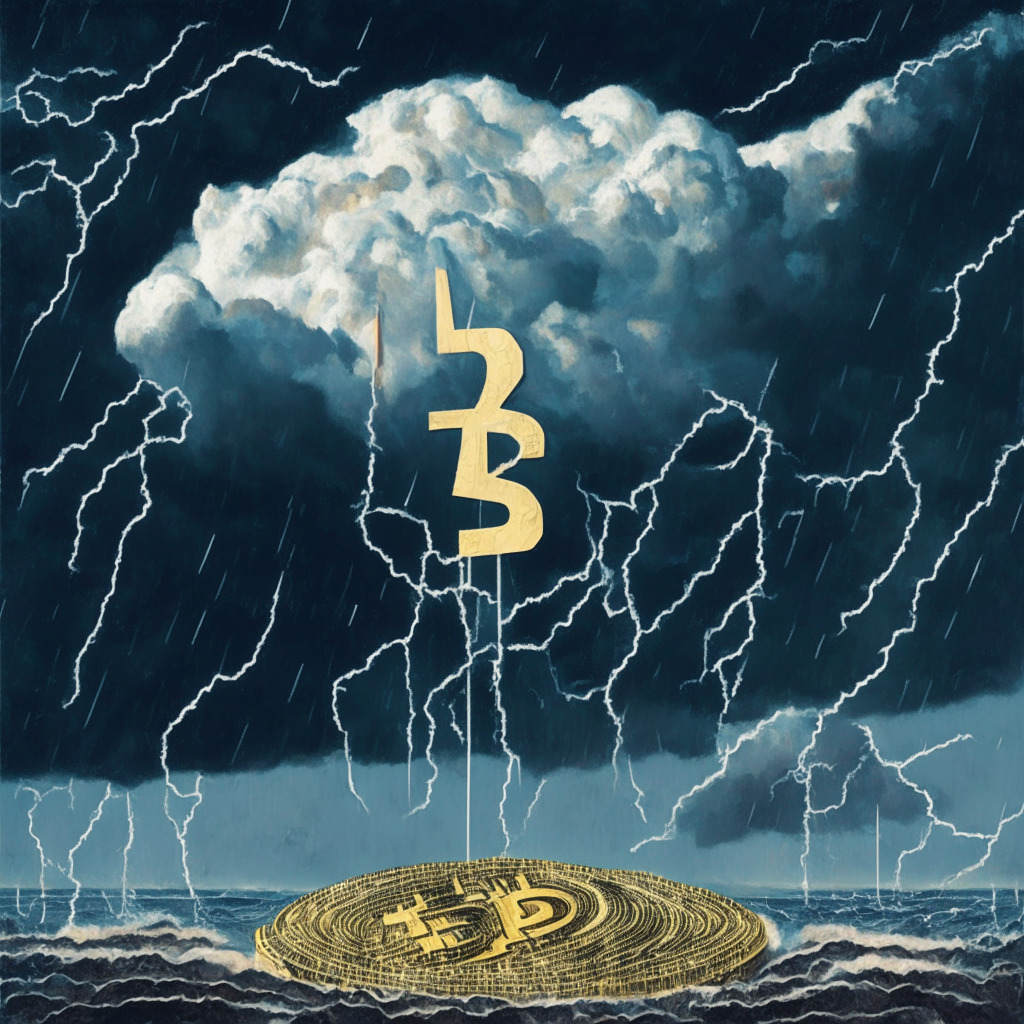“Bitcoin’s lethargic performance contrasts with Coinbase’s new international expansion plans. Responding to uncertainty in U.S. regulations, Coinbase targets significant financial jurisdictions with clear crypto rules. Meanwhile, upcoming changes in accounting standards could affect the perceived value of Bitcoin-heavy companies like MicroStrategy.”
Search Results for: Brazil
Coinbase Expansion: Pursuing Global Reach Amid Regulatory Ambiguity
“Cryptocurrency exchange Coinbase is eyeing international expansion, with focus on UK, EU, Canada, Brazil, Singapore, and Australia. Despite initial doubts, the company is strategically positioning itself as a trusted brand in Europe ahead of crucial 2024 elections and plans to introduce derivatives to new markets.”
Navigating the US Crypto Regulatory Hurdles: Will Clarity Emerge or Companies Relocate?
The United States’ unclear crypto regulations are driving companies to seek more crypto-friendly countries. Tennessee Senator, Bill Hagerty, supports comprehensive cryptocurrency legislation in the US, replacing the current ‘regulation by enforcement’. He also highlights risks in the unrestricted adoption of Central Bank Digital Currencies (CBDCs).
Coinbase’s New Expansion: A Strategic Move or Industry Pressure?
Coinbase, a top crypto exchange, aims to expand to non-U.S. markets, prioritizing countries with clearer crypto regulations. The company’s strategy includes acquiring licenses, setting operations, and registering in these markets. It points to a lack of crypto-forward regulation in the U.S., potentially impacting its influence in the crypto field.
The Silent Threat: How CBDCs Could Erode Your Financial Freedom
“Central bank digital currencies (CBDCs) offer governments easy access to data collection, surveillance, and asset seizure. Although promoted for benefits such as tax collection and combating financial crime, these programmable money forms may lead to increased transaction censorship and misuse from state control. Counteracting this potential erosion of liberty, cryptocurrencies offer a means to safeguard transactional rights.”
Binance’s Zero-Fee Expansion: A Strategic Move or a Response to Regulatory Hurdles?
“Binance expands its zero-fee trading to Argentine, Brazilian, and South African currency spot trading pairs. This move is seen as an attempt to increase trading of prominent cryptocurrencies against mentioned fiat currencies, despite confronting legal and regulatory hurdles, especially in the U.S. and Europe.”
MetaMask’s Bold Moves: Expanding Crypto Conversion Amid Scam Woes
MetaMask has enhanced its user experience by allowing ETH conversion to fiat currency. Despite advancements, it faces scamming challenges with fraudsters creating bogus MetaMask sites for illegal activities. Users need to be vigilant and proactive in reporting any suspicious activity or compromised security details to MetaMask.
UK’s New Crypto Rules: Balancing Financial Security and Innovation
The UK’s Financial Conduct Authority now requires Virtual Asset Service Providers to gather and validate information on crypto transactions, even beyond local jurisdiction. This regulation, known as the Travel Rule, aims to counter money laundering and terrorist financing, yet raises concerns regarding privacy and curbing innovation within the growing crypto industry.
Soccer Legend Ronaldo’s NFT Gameplan Vs The Regulatory Framework of Crypto Markets
“Soccer legend Cristiano Ronaldo, an early adopter of NFTs, recently revealed his future plans for more NFT collections through a lie detector experience. As crypto markets evolve, sports stars like Ronaldo are actively participating, but it’s crucial for individuals and corporations to tread cautiously.”
Unraveling Ronaldinho’s Alleged involvement in a $1.2 Billion Crypto Tragedy: Lessons for Digital Safety
Former soccer star Ronaldinho Gaucho is implicated in a cryptocurrency pyramid scheme involving company 18k Ronaldinho Comércio e Participações Ltda. Accusations include deceiving investors with promises of 2% daily return rates. Ronaldinho refutes these claims, citing name misuse in company establishment.
Unveiling Polygon’s Open Source Developer Stack: Scalability Promise vs. Skepticism
Polygon’s new open-source sidechain developer stack is set to power Layer 2 solutions on Ethereum, backing its commitment to the evolution of the Ethereum ecosystem. Key to this advancement is the integration of zero-knowledge proof technology, considered critical for the scaling of the Ethereum blockchain. However, critics raise concerns about potential inefficiencies and differing architecture.
Cryptocurrency Predicaments: Ronaldinho’s Alleged Scam and Ethereal Debate on Ethereum Staking
Former professional soccer player, Ronaldinho denied his involvement in a $61 million crypto pyramid scheme at a congressional hearing in Brazil. The scheme, known as “18kRonaldinho” used his likeness to promise daily returns of 2% on cryptocurrency. The verdict is still out on the reimbursement for those who invested in the company, highlighting the complexity of crypto-regulations and market dynamics.
Exploring Chimpzee: Fusing Crypto Earnings with Climate Action & Its Future Prospects
“Chimpzee, a green initiative crypto project, has garnered impressive support, crossing the $1.25M mark in their presale wave. Utilizing blockchain technology, it incentivizes climate action through rewards. It balances monetary gains with environmental impact, potentially inspiring collective action towards a healthier world.”
Phantom to Tangible: The dMRV Blockchain Approach to Clean Up GHG Carbon Trading
“Digital monitoring, reporting, and verification (dMRV) leverages technologies like machine learning, remote sensing, satellite imagery, and blockchain for traceability and security in carbon reduction projects. Questions arise whether this method could transform voluntary carbon markets or if it’s too late for altering climate change.”
Shackles or Safeguards? Federal Reserve’s Crypto Oversight Fuels Global Expansion
The Federal Reserve’s intensified scrutiny of banks’ cryptocurrency activities has sparked criticism from Republican lawmakers who argue this deters institutions from participating in the digital asset landscape. The Fed’s new requirements may potentially suppress the progress of decentralized finance. Amidst this, U.S. regulations on digital assets remain unclear, pushing some crypto companies to explore alternative markets overseas. The discourse focuses on balancing effective supervision with fostering blockchain innovation.
Ronaldinho’s Crypto Controversy: Is Football in a Blockchain Dilemma?
Brazilian football legend Ronaldinho faces scrutiny from lawmakers for his potential involvement in cryptocurrency pyramid schemes linked to platforms 18kRonaldinho and LBLV. Accused of misleadingly baiting potential investors, Ronaldinho could face incarceration if he defies a hearing order. A collective loss claimed by investors totals around $61 million. The outcome of the case could impact future athletes’ crypto investments.
Ronaldinho Entangled in Crypto Fraud: A Lesson on Investment Caution and Insight
“Former football star Ronaldinho may face detainment in Brazil due to his failure to testify in an ongoing crypto scam probe. The case relates to a pyramid scheme promising clients daily profits via crypto investments linked to ’18kRonaldinho’, a company associated with Ronaldinho. The incident underscores the need for robust regulation in crypto markets to prevent fraudulent practices.”
The Great Debate: U.S. Crypto Development Hiatus or Reinvention?
Antonio Juliano, founder of dYdX, suggests a hiatus for US-focused crypto development due to the austere regulatory framework. He encourages startups to explore non-US markets for less regulatory ambiguity and swifter growth. However, the CEO of Coinbase, Brian Armstrong, is confident in US adaptability, contradicting Juliano’s decade-long pause suggestion.
A Rollercoaster Crypto Week: Triumphs, Tribulations, and the Quest for Unchartered Territories
“In a dynamic crypto week marked by revenue surges, privacy breaches, and promising tech advancements, we also see virtual activism in Metaverse, innovative crypto-related services, and increasing institutional embrace of digital assets. However, challenges persist with regulatory complexities and cyber threats.”
Visa and Mastercard Sever Ties with Binance: A Shake-up or Just a Ripple in the Crypto Market?
“Payment giants Visa and Mastercard have distanced themselves from Binance amid ongoing regulatory challenges for the leading crypto exchange. Despite this, industry experts predict modest impact on Binance’s market share. The situation illustrates how institutional caution could affect the cryptocurrency market’s future.”
Mastercard Ends Crypto Card Partnership with Binance: An Insight into Evolving Crypto Regulations
Mastercard has announced the termination of its cryptocurrency card partnership with Binance amid increased regulatory scrutiny of the cryptocurrency exchange. This decision, however, does not affect Mastercard’s other crypto card partnerships and highlights the evolving landscape of crypto regulations.
Num Finance’s nCOP: Bringing Blockchain Innovations to Colombia and Beyond
“Num Finance has launched nCOP, a token pegged to the Colombian peso, utilizing the Polygon framework for transfer, payment, saving, and earning through blockchain. Stablecoins offer flexibility and can be used for remittances, store of value, and potentially yield profit.”
Mastercard and Binance Separation: A Shift in Crypto-Regulation Landscape or a Business Misstep?
“The recent separation between Mastercard and cryptocurrency broker Binance raises questions regarding Binance’s regulatory issues. Despite ending the partnership, Mastercard remains interested in blockchain technology. But, caution has been advised for Binance users in response to these unfolding events.”
Navigating the Crypto Winds: The Highs, Lows and Ambiguities in Blockchain’s Future
“Unstoppable Domains has unveiled Unstoppable Messaging, a product of the Web3 messaging network XMTP. Meanwhile, Binance.US has paired with MoonPay to allow customers to convert USD into tether (USDT) amidst their comeback from a dollar deposit suspension. Despite advancements, cybersecurity challenges persist in the blockchain world.”
Navigating Market Drops and Community Building: Reassessing Crypto’s Future Prospects
“Amid Bitcoin’s drop to $26,000, there is no evidence of professional traders turning bearish, suggesting a less prolonged correction period. Meanwhile, post-crash Bitcoin futures show a healthy demand equilibrium. The article also introduces Iman Europe’s Web3-based project that envisions a supportive space for artists in the music industry, underlining crypto’s potential beyond mere profit-making.”
Blockchain vs Traditional Payments: A Detailed Analysis of Utility, Constraints and Potential
Cross-border payments demonstrate the utility of digital currencies, yet adoption faces challenges like technological issues, competition, and regulatory constraints. Blockchain Officer, Paul Brody, suggests basic fiat payments are faster and cheaper through centralized systems, while blockchain payments can impact speed and cost due to duplication across nodes. Blockchain’s potential may not lie in replacing existing models, but in altering the transaction rules through tokenization and inherent programmability.
Financial Misconduct and Crypto: The Sam Bankman-Fried Story Paralleling Global Cryptocurrency Concerns
Sam Bankman-Fried faces allegations of fraud and money laundering involving his crypto exchange, FTX. Meanwhile, the Bank of International Settlements and financial stability directors raise concerns about crypto’s potential to enhance financial risks in underdeveloped economies. Balancing financial stability with fostering innovation remains a critical challenge.
Crypto’s Promise and Peril: Emerging Economies Face Financial Risks from Unregulated Cryptocurrencies
“Cryptocurrencies could potentially elevate financial risks in less developed economies, warns a study by the Bank for International Settlements (BIS). Emerging economies could face prohibitive legislation, pushing crypto activities into obscurity and bringing potential market risks.”
Cryptocurrency Adoption in Emerging Economies: A Boon or a Bane?
“Emerging economies are becoming cryptocurrency adoption centers due to unstable fiat currencies and limited banking access. However, a study by the Bank for International Settlements suggests that cryptocurrencies have “amplified financial risks”. The authors propose regulation rather than an outright ban, aiming to channel innovation into socially useful directions.”
Banking on the Digital Ruble: Heralding a New Era or Stoking Controversy?
The Russian Central Bank’s proposal classifies the digital ruble, as a “high-quality liquid asset”. This could usher a dramatic reconfiguration of how financial institutions perceive and maintain liquid assets, potentially revolutionizing cross-border payment methods. However, this shift is viewed with apprehension among commercial banks.
Future of Gold-Backed BRICS Currency: A Dream or Reality? Debating Pros, Cons, and Bitcoin Effect
“Macroeconomist Lyn Alden argues against the feasibility of a forthcoming gold-backed BRICS currency, citing it a tough challenge for BRICS members. Doubts are raised about the model backing a fractional-reserve banking system with gold.”
Surge in Stablecoin Use Amid Argentina’s Political Turmoil: A Deep Dive into Crypto’s Role in National Economy
Amidst Argentina’s economic crisis and hyperinflation, Argentinians are significantly increasing their purchase of stablecoins as a viable way to protect their savings. The trend, spurred by government restrictions on foreign currency buying and a depreciating peso, also sees an increasing number of transactions and salaries being paid in cryptocurrencies. The upsurge coincides with the rise of presidential candidate, Javier Milei, who holds a positive stance towards cryptocurrencies.































